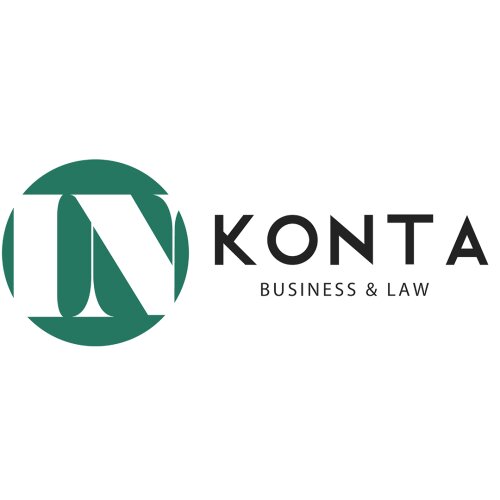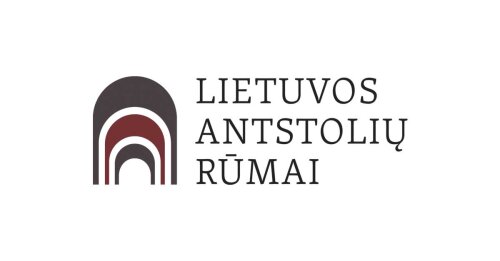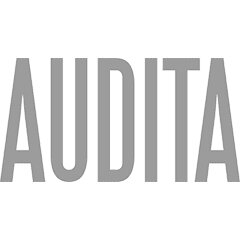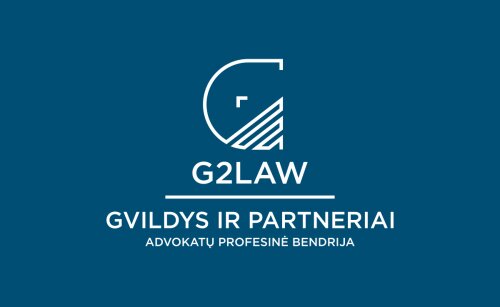Best Tax Lawyers in Republic of Lithuania
Share your needs with us, get contacted by law firms.
Free. Takes 2 min.
Or refine your search by selecting a city:
List of the best lawyers in Republic of Lithuania

About Tax Law in Republic of Lithuania
Tax law in the Republic of Lithuania governs the rules and regulations surrounding the imposition and collection of taxes. It covers various types of taxes, including personal income tax, corporate tax, value-added tax (VAT), and social security contributions. Understanding tax law is essential for individuals and businesses to comply with their tax obligations and avoid any legal issues.
Why You May Need a Lawyer
There are several situations where you may need a lawyer specializing in tax law in Lithuania. Some common scenarios include disputes with tax authorities, tax audits, tax planning for individuals and businesses, international tax matters, and handling tax litigation. A tax lawyer can provide legal advice, representation, and assistance in navigating the complex tax laws and regulations.
Local Laws Overview
In Lithuania, individuals are required to pay personal income tax on their earnings, while businesses are subject to corporate income tax on their profits. VAT is imposed on the sale of goods and services, and social security contributions are mandatory for employees and employers. It is essential to keep accurate records, file tax returns on time, and comply with all tax laws to avoid penalties and fines.
Frequently Asked Questions
1. How is personal income tax calculated in Lithuania?
Personal income tax in Lithuania is calculated based on progressive rates ranging from 20% to 32%. It is deducted at the source by employers and must be filed annually with the tax authorities.
2. What are the key deductions available for individuals in Lithuania?
Some key deductions available for individuals in Lithuania include health insurance contributions, pension contributions, and certain education expenses.
3. How can businesses reduce their tax liabilities in Lithuania?
Businesses in Lithuania can reduce their tax liabilities through proper tax planning, utilizing tax incentives and deductions, and engaging in legitimate tax-saving strategies.
4. What are the VAT rates in Lithuania?
The standard VAT rate in Lithuania is 21%, with reduced rates of 9% and 5% applying to certain goods and services.
5. How can I appeal a tax assessment in Lithuania?
If you disagree with a tax assessment in Lithuania, you can file an appeal with the tax authorities within the specified time frame. It is recommended to seek legal advice before proceeding with an appeal.
6. Are there any tax treaties that Lithuania has signed with other countries?
Lithuania has signed tax treaties with many countries to avoid double taxation, promote trade and investment, and enhance cooperation in tax matters. These treaties provide guidelines on how taxes should be levied on cross-border transactions.
7. What are the penalties for tax evasion in Lithuania?
Tax evasion in Lithuania is considered a criminal offense and can result in fines, penalties, and even imprisonment. It is essential to comply with tax laws and regulations to avoid any legal consequences.
8. Can I represent myself in tax court in Lithuania?
While you have the right to represent yourself in tax court in Lithuania, it is advisable to seek legal representation from a tax lawyer who can provide expertise, guidance, and advocacy on your behalf.
9. Are there any tax relief programs available for individuals and businesses in Lithuania?
Lithuania offers various tax relief programs, incentives, and exemptions to promote economic development, innovation, and investment. It is recommended to consult with a tax lawyer to explore available options and determine eligibility.
10. How can I stay updated on changes to tax laws in Lithuania?
To stay informed about changes to tax laws in Lithuania, you can regularly check the website of the State Tax Inspectorate, attend tax seminars and workshops, and consult with tax professionals who can provide updates and insights on the latest developments.
Additional Resources
For additional resources related to tax law in Lithuania, you can visit the website of the State Tax Inspectorate (VMI), the Ministry of Finance, and the Lithuanian Bar Association. These resources provide valuable information, guides, and contacts for individuals and businesses in need of legal advice on tax matters.
Next Steps
If you require legal assistance in tax matters in Lithuania, it is recommended to consult with a qualified tax lawyer who can assess your situation, provide personalized advice, and represent your interests in dealings with tax authorities. Take proactive steps to address any tax issues promptly and ensure compliance with all regulatory requirements to avoid potential legal consequences.
Lawzana helps you find the best lawyers and law firms in Republic of Lithuania through a curated and pre-screened list of qualified legal professionals. Our platform offers rankings and detailed profiles of attorneys and law firms, allowing you to compare based on practice areas, including Tax, experience, and client feedback.
Each profile includes a description of the firm's areas of practice, client reviews, team members and partners, year of establishment, spoken languages, office locations, contact information, social media presence, and any published articles or resources. Most firms on our platform speak English and are experienced in both local and international legal matters.
Get a quote from top-rated law firms in Republic of Lithuania — quickly, securely, and without unnecessary hassle.
Disclaimer:
The information provided on this page is for general informational purposes only and does not constitute legal advice. While we strive to ensure the accuracy and relevance of the content, legal information may change over time, and interpretations of the law can vary. You should always consult with a qualified legal professional for advice specific to your situation.
We disclaim all liability for actions taken or not taken based on the content of this page. If you believe any information is incorrect or outdated, please contact us, and we will review and update it where appropriate.
Browse tax law firms by city in Republic of Lithuania
Refine your search by selecting a city.














